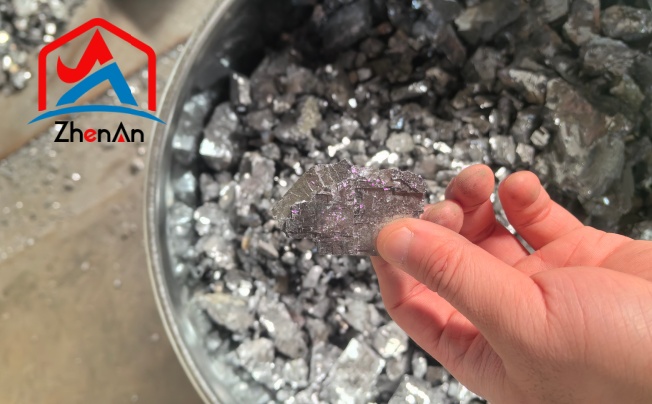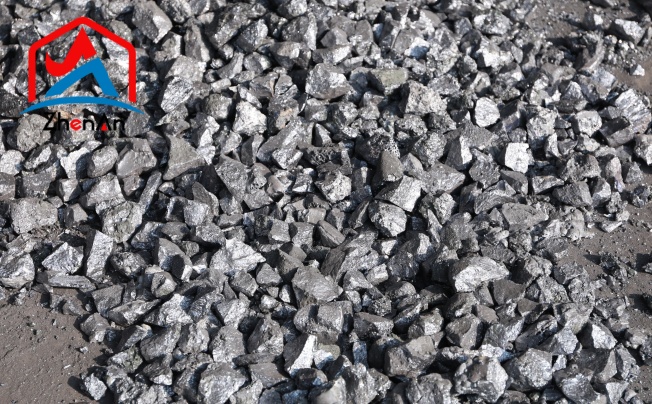Petroleum coke, often abbreviated as pet coke, is a carbonaceous solid derived from the distillation of crude oil. It is a byproduct of the refining process and typically has a high carbon content. The composition of petroleum coke can vary depending on the crude oil source and the refining techniques.
Brief History and Production Process
The utilization of petroleum coke traces back to ancient times when it was used as a fuel source in regions rich in natural bitumen deposits. However, its modern production and usage are closely linked to the development of the oil refining industry. The production process begins with the distillation of crude oil at high temperatures to yield various products such as gasoline, diesel, and jet fuel.
Petroleum coke is formed during this process when heavy residual oils undergo thermal cracking to produce lighter fractions. In terms of production volume, major petrochemical complexes around the world contribute significantly to the supply chain for petroleum coke.
These facilities utilize advanced technologies to extract maximum value from crude oil by processing heavier components into valuable products such as pet coke. The refining process involves coking units where residual oils are subjected to high temperatures in coking drums or fluidized beds to produce different grades of petroleum coke suitable for diverse applications.
Raw Material for Carbon Products
- Graphite Electrode Production for Steelmaking
In the steelmaking industry, high-quality graphite electrodes are essential components in electric arc furnaces used for melting scrap steel. The importance of using high-quality electrodes lies in their ability to withstand extreme temperatures and provide efficient electrical conductivity during the smelting process. Petroleum coke, with its unique properties including high carbon purity and low impurities, is a preferred raw material for manufacturing graphite electrodes.
Unique Properties: The specific characteristics of petroleum coke such as low sulfur content, high thermal conductivity, and controlled crystalline structure make it an ideal material for producing graphite electrodes with superior performance and longevity. These properties ensure stable electrical resistance and minimal electrode consumption during steel production processes.
- Anode Production for Aluminum Smelting
In aluminum smelting operations utilizing the Hall-Héroult process, carbon anodes play a crucial role in conducting electricity through the electrolytic cell to produce molten aluminum from alumina oxide. Petroleum coke serves as a primary ingredient in manufacturing these carbon anodes due to its specific requirements and characteristics tailored for anode production.
Specific Requirements: Anodes made from petroleum coke require specific physical properties including high electrical conductivity, resistance to thermal shock, low reactivity with molten aluminum, and sufficient mechanical strength to withstand operation conditions within electrolytic cells. The selection of petroleum coke with suitable particle size distribution, porosity levels, and chemical composition directly impacts the performance and efficiency of anodes used in aluminum smelting processes.
Niche Applications of Petroleum Coke
Production of Titanium Dioxide (TiO2)
Titanium dioxide, commonly known as TiO2, is a versatile compound widely utilized in various industries such as paints, plastics, and paper production. As a white pigment, TiO2 imparts brightness and opacity to products like paints and coatings, enhancing their covering power and durability. In plastics, it serves as a UV stabilizer, protecting the material from degradation caused by sunlight exposure.
Additionally, TiO2 plays a crucial role in the paper industry by improving the paper's whiteness and printability. The synthesis of TiO2 involves complex chemical processes that require reducing agents to facilitate the conversion of raw materials into the desired compound.
Petroleum coke has emerged as an effective reducing agent in TiO2 production due to its high carbon content and low impurity levels. By providing carbon for reduction reactions, petroleum coke enables efficient conversion of titanium ores into pure TiO2, ensuring high product quality and yield in this essential industrial process.
Manufacturing Synthetic Graphite Materials
Synthetic graphite holds immense importance across diverse applications ranging from lithium-ion batteries to aerospace technologies due to its exceptional electrical conductivity, thermal stability, and mechanical strength. In industries where natural graphite may not meet stringent performance requirements, synthetic graphite emerges as a preferred choice for its tailored properties.
The demand for synthetic graphite continues to rise in response to advancements in energy storage systems and high-tech applications that rely on superior material characteristics. Petroleum coke serves as a critical precursor material in the manufacturing process of synthetic graphite due to its suitability for graphitization—a heat treatment process that transforms carbonaceous materials into crystalline graphite structures.
Utilization as a Fuel Source in Cement Kilns
When it comes to the lesser-known applications of petroleum coke, one intriguing use is its utilization as a fuel source in cement kilns. Cement production is an energy-intensive process that requires high temperatures for clinker formation.
Petroleum coke, with its high calorific value and low ash content, has emerged as a viable alternative fuel for cement manufacturers seeking to reduce their carbon footprint. By substituting traditional fossil fuels with petroleum coke in cement kilns, companies can not only achieve cost savings but also contribute to environmental sustainability efforts.
One of the key environmental considerations associated with using petroleum coke in cement kilns is the reduction of greenhouse gas emissions. By utilizing this byproduct from oil refining processes as a fuel source, cement plants can decrease their reliance on coal and other fossil fuels that release higher levels of carbon dioxide into the atmosphere.
Additionally, the combustion of petroleum coke in cement kilns can result in lower sulfur dioxide emissions compared to coal, thereby helping to mitigate air pollution and acid rain effects. The benefits of incorporating petroleum coke as a fuel source in cement kilns extend beyond environmental advantages.
Cement manufacturers can experience improved energy efficiency and operational flexibility by leveraging the stable and consistent combustion characteristics of petroleum coke. This alternative fuel option not only offers cost savings but also enhances the overall sustainability profile of the cement industry by reducing its reliance on conventional fossil fuels.
Production of Activated Carbon
Delving into another unconventional application, petroleum coke serves as a valuable raw material for the production of activated carbon. Activated carbon is widely utilized across various industries for its exceptional adsorption properties, which make it ideal for purifying air and water, removing impurities from gases and liquids, and serving as an essential component in filtration systems.
The unique properties inherent to petroleum coke make it particularly well-suited for activated carbon production due to its high carbon content, porosity, and surface area characteristics. The process of converting petroleum coke into activated carbon involves thermal treatment at elevated temperatures under controlled conditions to create a highly porous structure conducive to adsorption processes.
Through activation techniques such as physical or chemical activation, the inherent properties of petroleum coke can be harnessed to produce activated carbon with tailored pore structures optimized for specific applications. This transformation not only adds value to an underutilized byproduct but also contributes to sustainable resource management through efficient waste utilization.
What sets apart the utilization of petroleum coke for activated carbon production is its ability to yield activated carbons with diverse pore size distributions suitable for various adsorption requirements. From removing contaminants in wastewater treatment plants to purifying gases in industrial processes, activated carbons derived from petroleum coke offer versatility and efficiency across multifaceted applications while promoting resource circularity and eco-friendly solutions within the realm of sustainable development.






